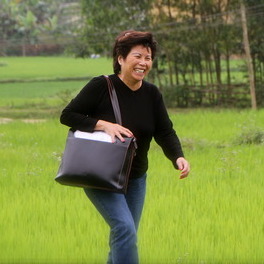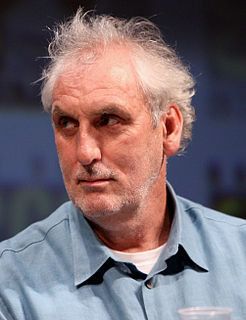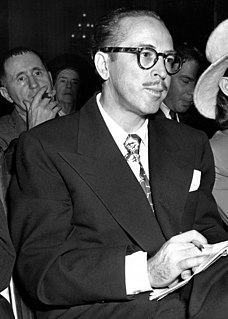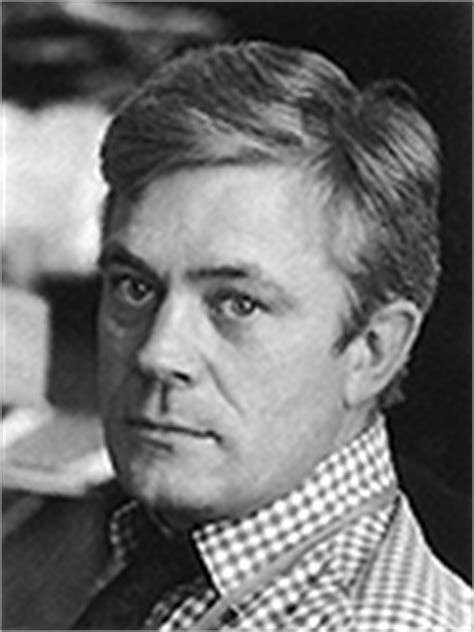A Quote by Tim O'Brien
Vietnam was the defining event for my generation. It spilled over into all facets of American life - into music, into the pulpits, in churches of our country. It spilled over into the city streets, police forces. And even if you were born late in the generation, Vietnam was still part of your childhood.
Related Quotes
I did go to Vietnam in 2000 as a kind of pilgrimage and to feel my generation was very much a part of this. I felt responsible but also connected and empathetic. It was a very complicated relationship we had, whichever side you were on. The shock of being there was very few people my own age - I was primarily in the North in the streets of Hanoi. A whole generation was essentially decimated.
On those nights, the words were for me alone. They came up unbidden from my heart. They spilled over my tongue and spilled out my mouth. And because of them, I, who was nothing and nobody, was a prince of Denmark, a maid of Verona, a queen of Egypt. I was a sour misanthrope, a beetling hypocrite, a conjurer's daughter, a mad and murderous king.
I think after Iceland's independence in 1944, we were not very sure of ourselves and our confidence was really low. It took one generation to sort of get over that. I'm second generation. My parents were born in 1945-46. Our movement at the punk times was like, we can sing in Icelandic, we are strong.
My generation those who were students in the late 60s was always, in the words of the Who, talking about our generation. That's what we thought of ourselves, as the most important thing since sliced bread. And the "we" that we meant was really the Western Europeans and American generation. And as I think back I suppose I have a sense of guilt on behalf of my generation, a sense that we were terribly provincial and didn't understand the really important stuff that was going on in Eastern Europe.
Most of us who were opposed to the war, especially in the early '60's - the war we were opposed to was the war on South Vietnam which destroyed South Vietnam's rural society. The South was devastated. But now anyone who opposed this atrocity is regarded as having defended North Vietnam. And that's part of the effort to present the war as if it were a war between South Vietnam and North Vietnam with the United States helping the South. Of course it's fabrication. But it's "official truth" now.
I've always been interested in Vietnam, feel it's a seminal event in our nation's history, and have explored it over the years - but I hadn't been interested in doing a documentary about it. I felt there had been a lot done about Vietnam, and didn't know if I could add anything new to the discussion.
The real invasion of South Vietnam which was directed largely against the rural society began directly in 1962 after many years of working through mercenaries and client groups. And that fact simply does not exist in official American history. There is no such event in American history as the attack on South Vietnam. That's gone. Of course, It is a part of real history. But it's not a part of official history.
For educated Americans like Joseph Ellis, Vietnam is a special hang-up. I am an Englishman of exactly the Vietnam generation, a couple of years younger than Ellis; indeed, for reasons too complicated to explain here, I was nearly drafted into the US army in 1965. I know many Americans of my own age and, as much to the point, my own class - journalists, publishers, lawyers. And I don't think I know one who served in Vietnam.






































